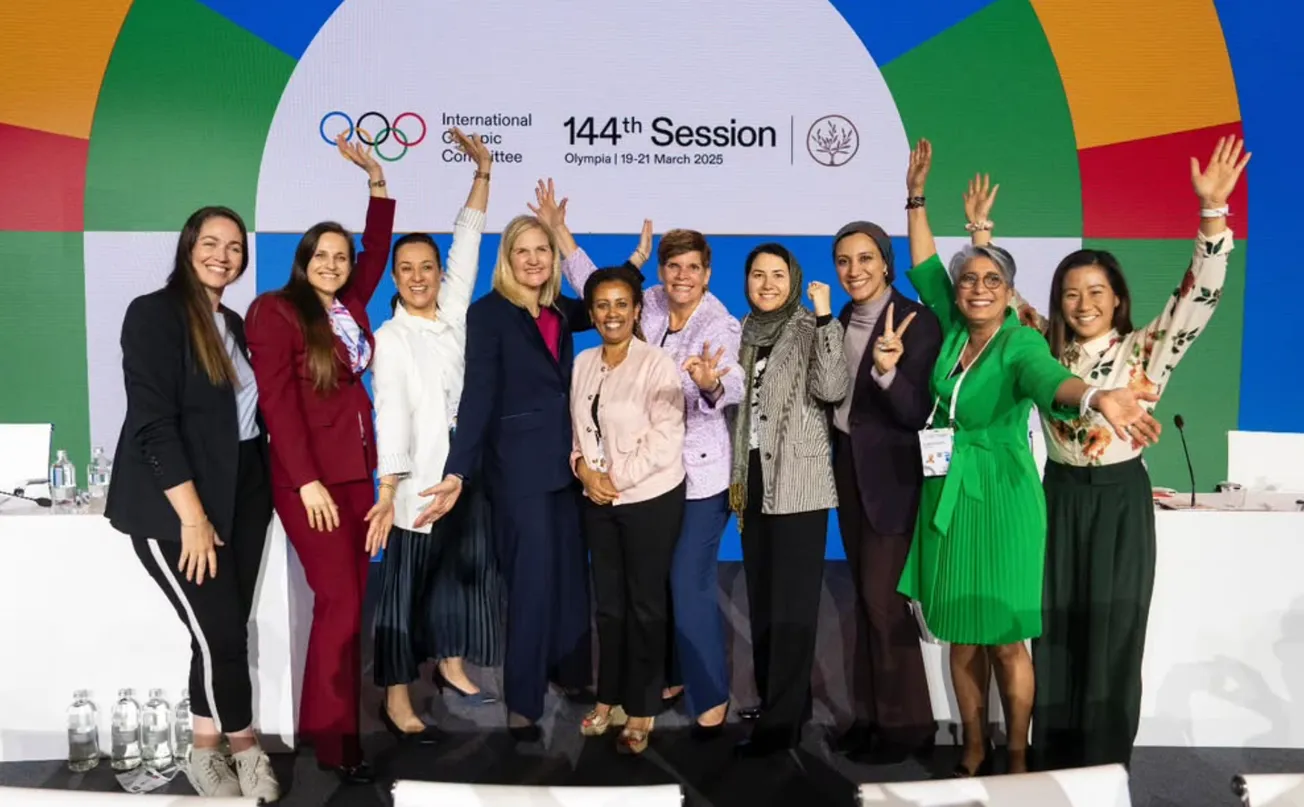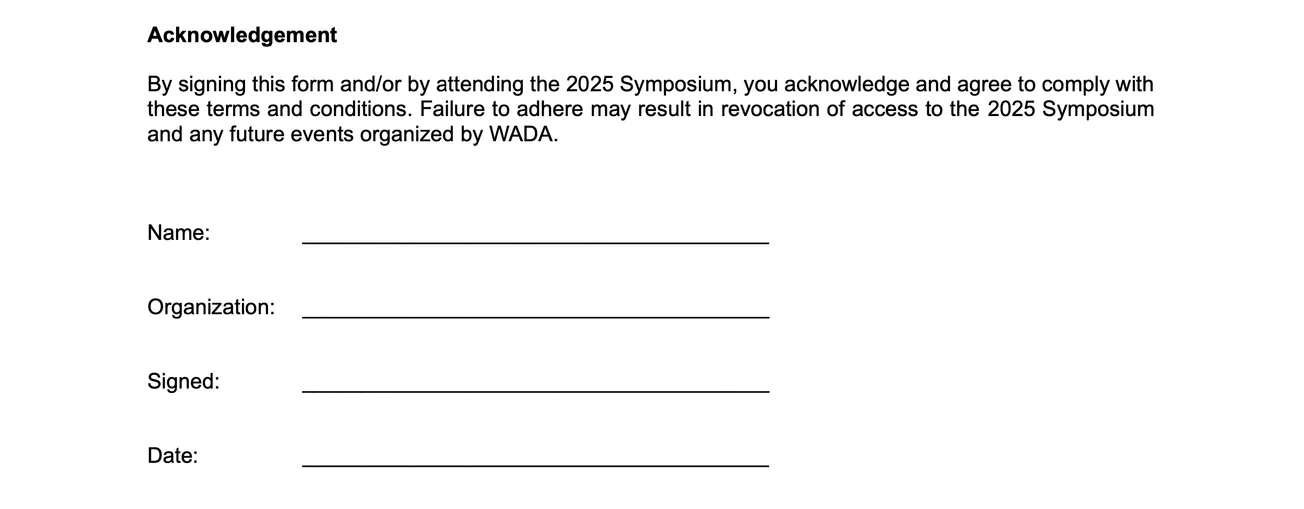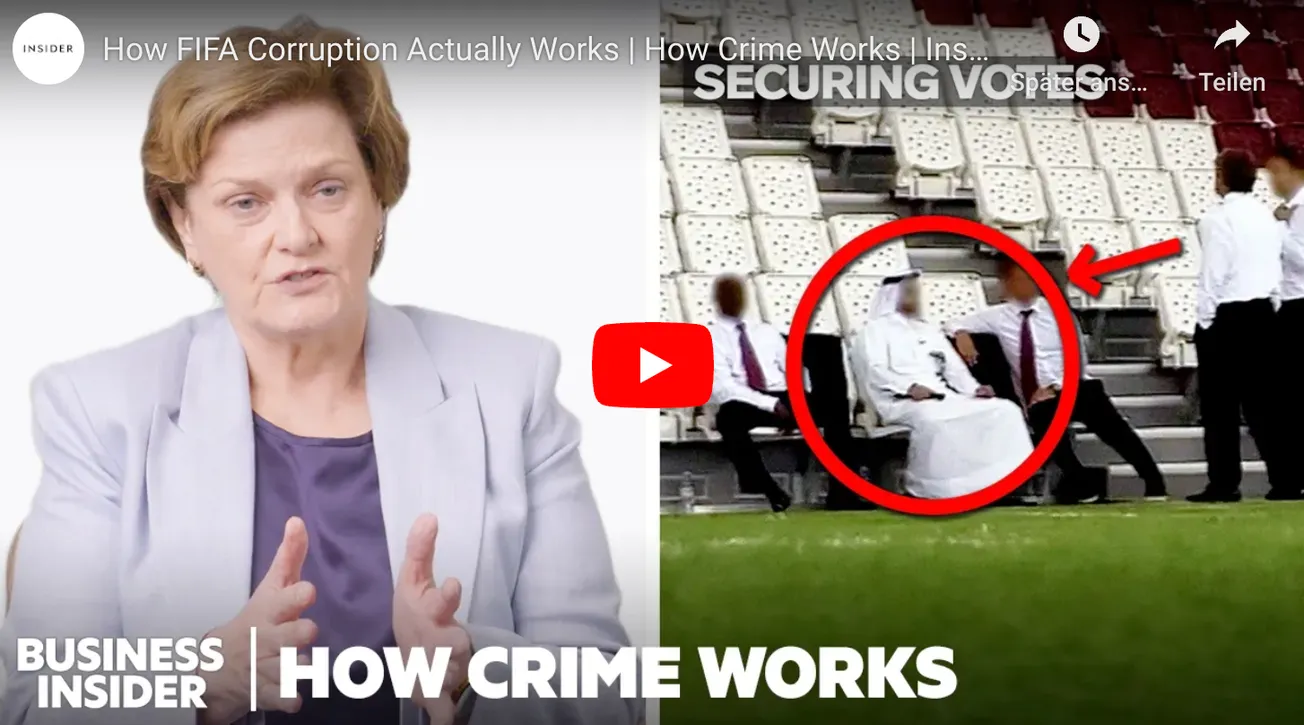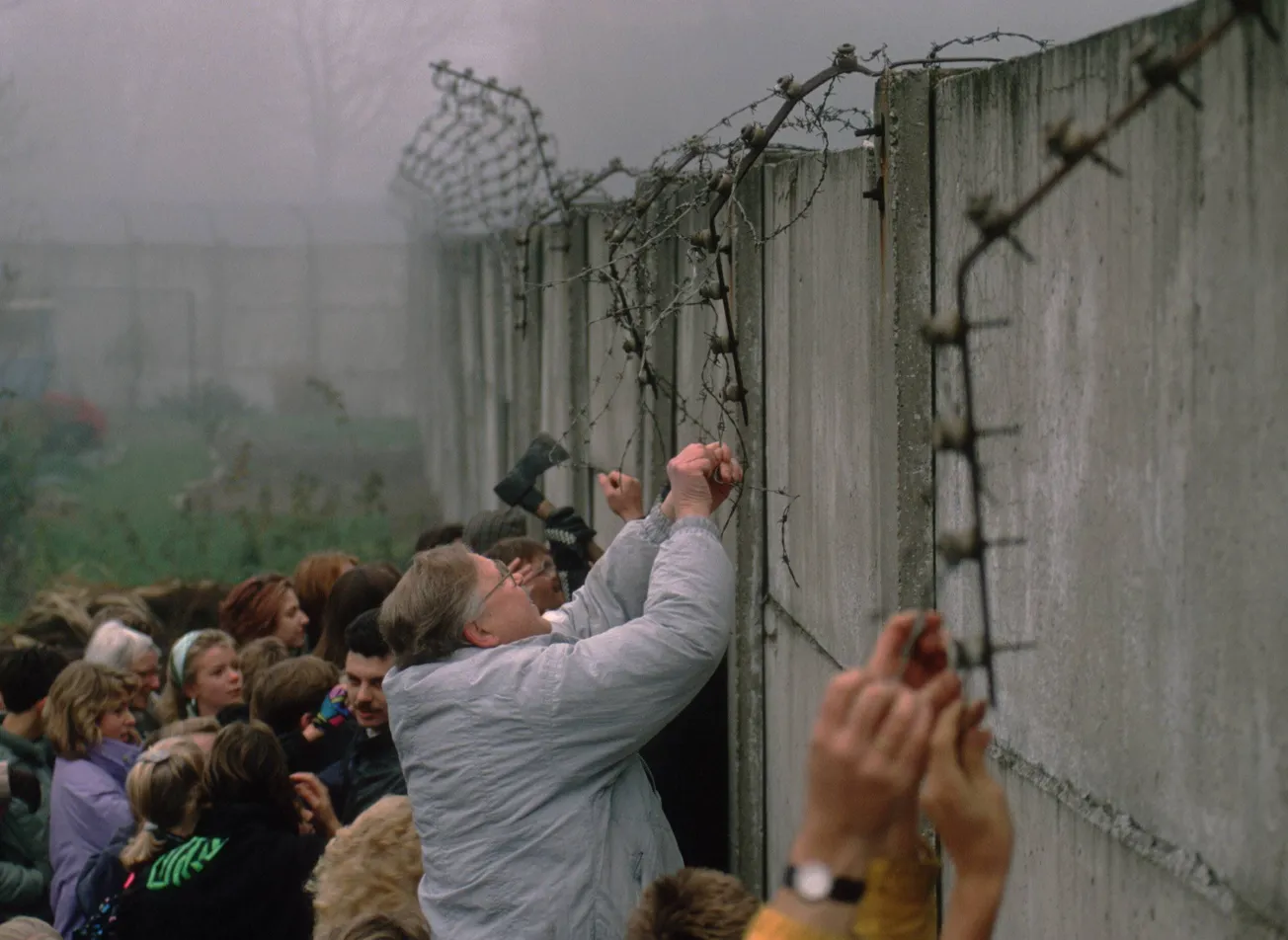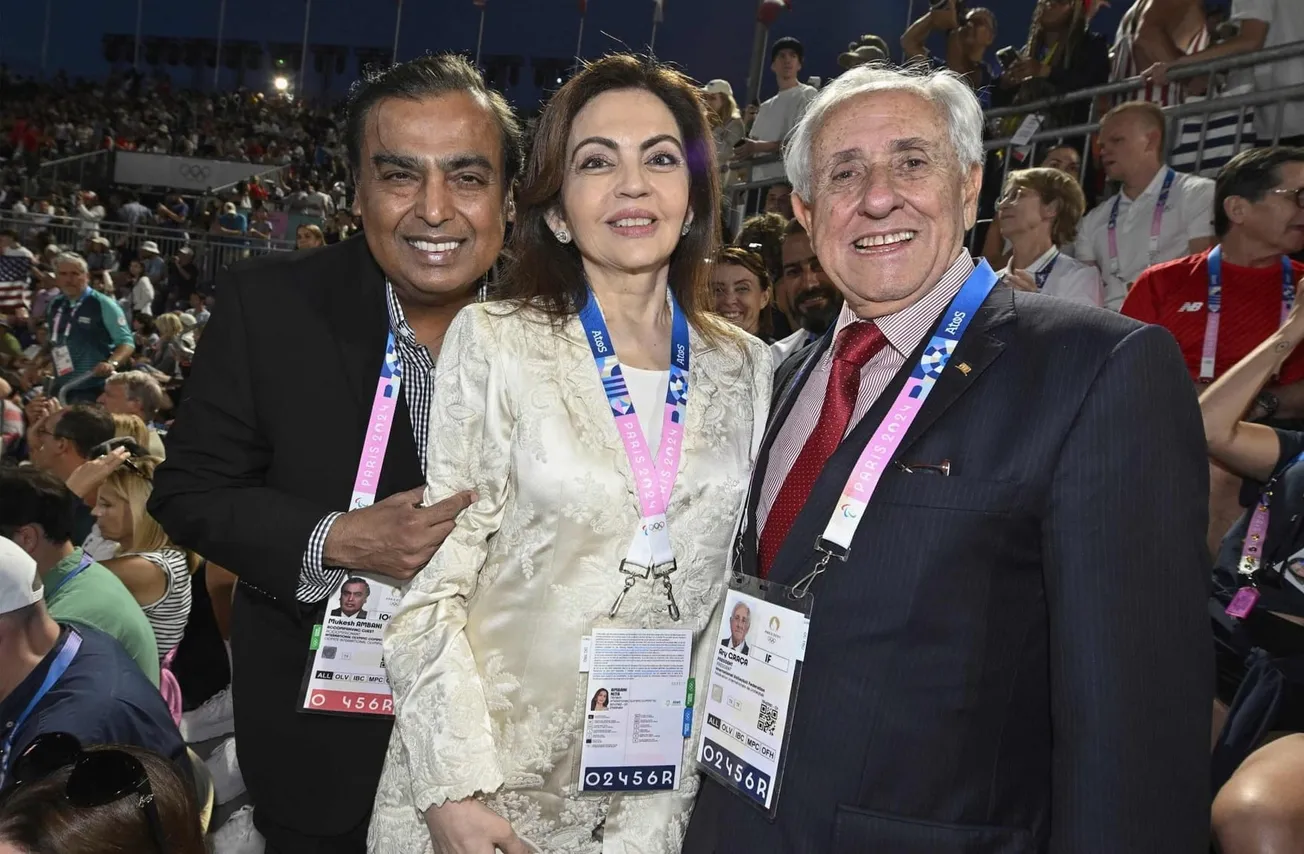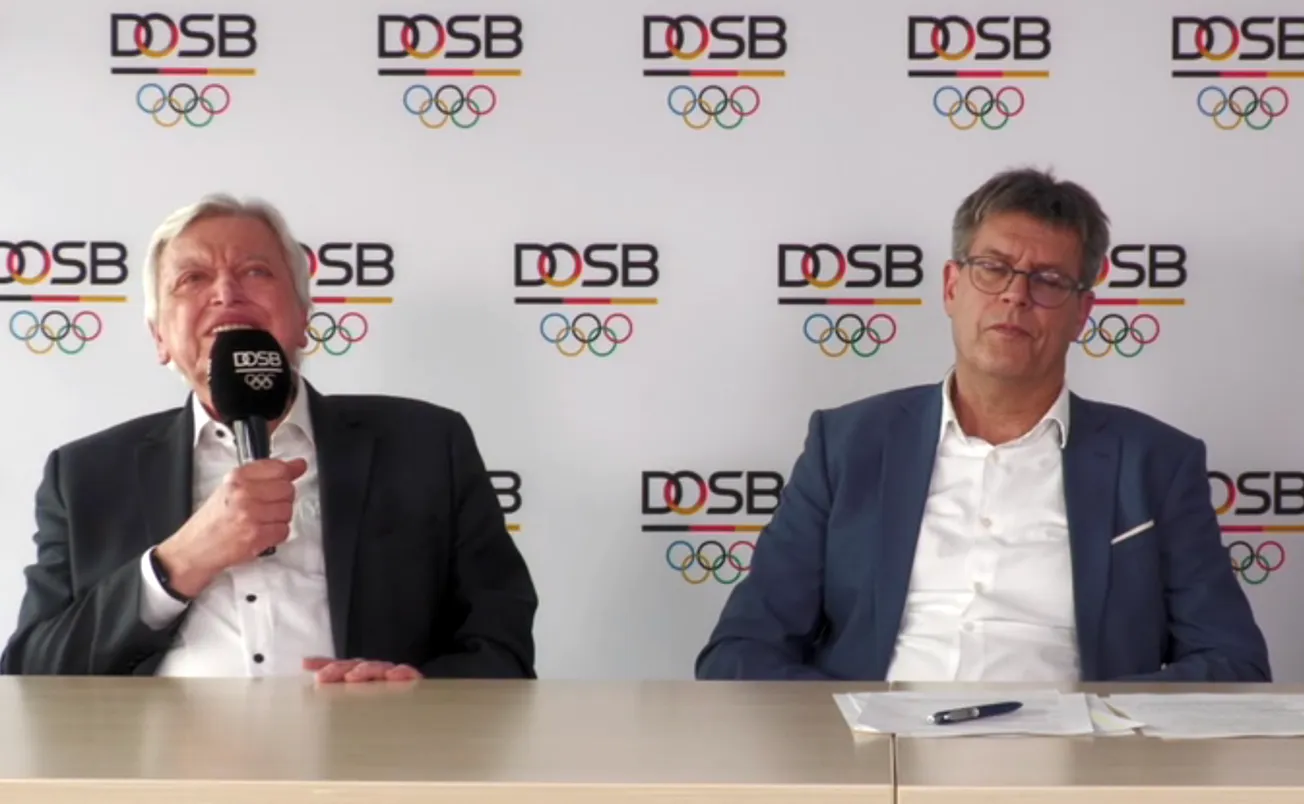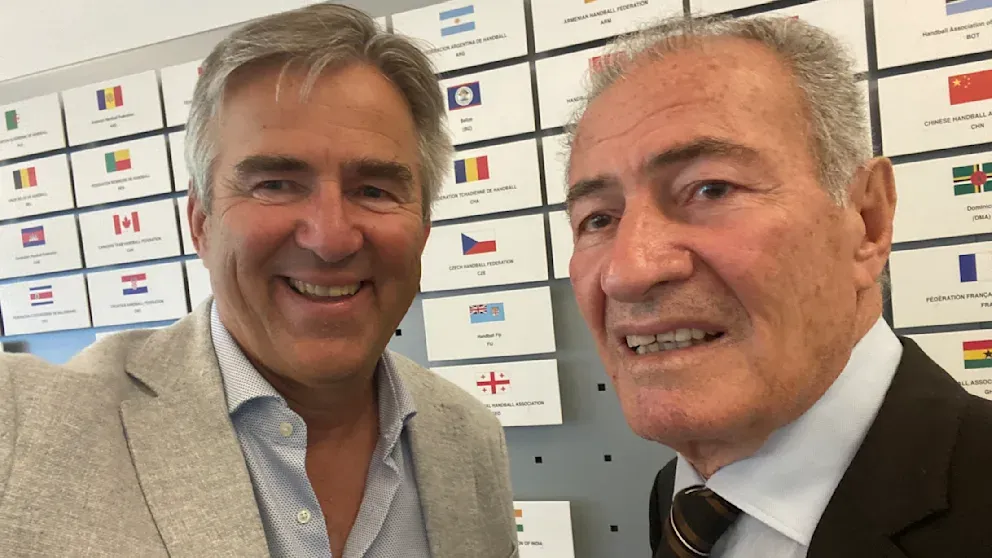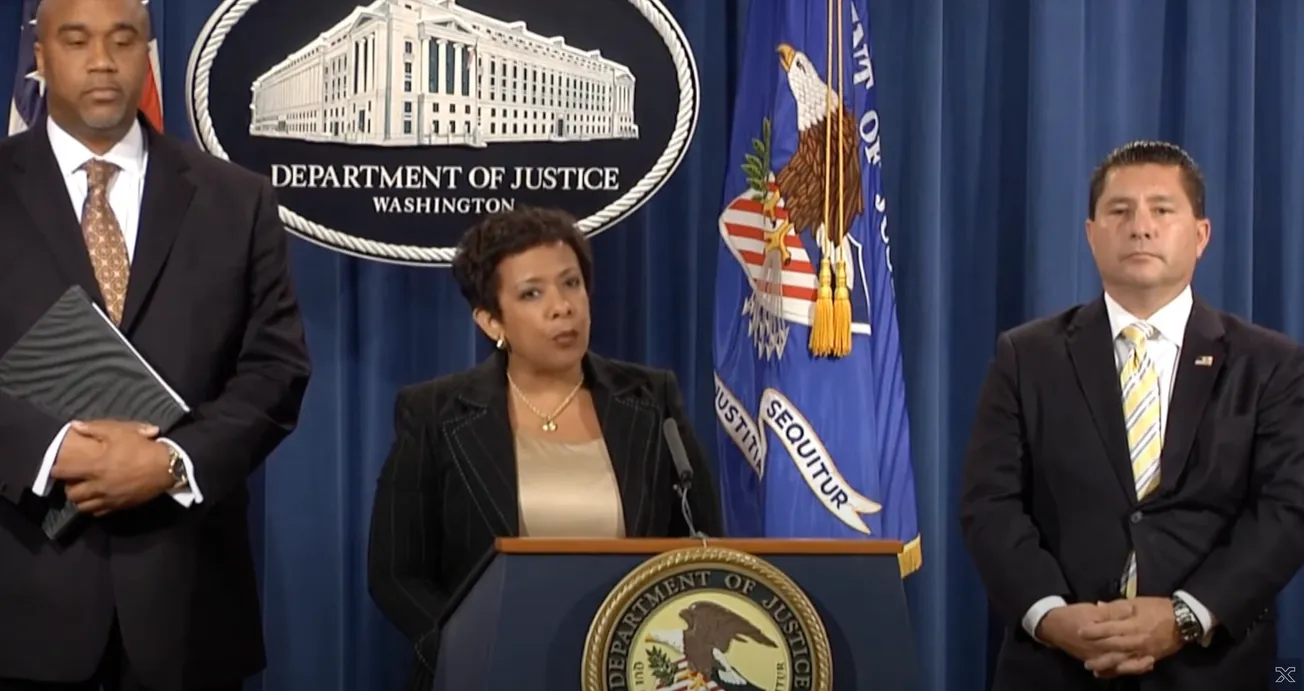Editorial in the Andrew Jennings Edition of SPORT & POLITICS magazine, January 2022.
Andrew would like this, I’m sure. He wants us to laugh. So: Andrew’s alter ego Juan Antonio Samaranch Sr. has had meticulous accounts kept of his official activities as President of the International Olympic Committee. In 1997, the IOC even published a statistics book on this by the Swedish sports historian and Samaranch fan Wolf Lyberg: The seventh President of the IOC – facts and figures. It is one of my favourite books. It listed pretty much everything that mankind desperately wanted to know about the day-to-day business of Samaranch’s first 17 years in office:
- How many days Samaranch flew (2,116),
- the number of days he travelled (3,520),
- the number of hours he flew (4,805),
- the number of Olympic medals distributed (679),
- the number of kilometres travelled (3,480,280),
- the number of NOCs visited (193) and
- the heads of state, kings, queens, princes, emirs, sultans and premiers he shook hands with (179).
Some of them, Lyberg obviously noted enthusiastically, Samaranch had visited “four or even six times”!
Wow.
Why am I reminding you of this?
I nimbly counted the photos of Samaranch printed in the IOC booklet: 92. Of course, the IOC did not publish any photos showing Samaranch Sr. with his revered Caudillo and with his right arm outstretched.
In this magazine in honour of Andrew Jennings, there are currently – at the time I am writing these lines – my editorial has yet to be illustrated, 29 photos of Andrew. There may be a few more to come.
92-29, then, for Samaranch against Jennings. A commanding victory.
But instead, as Andrew would have wanted, you will find four photos in this issue that show the Franquist Samaranch as the IOC has never shown him. And that is how it should be.
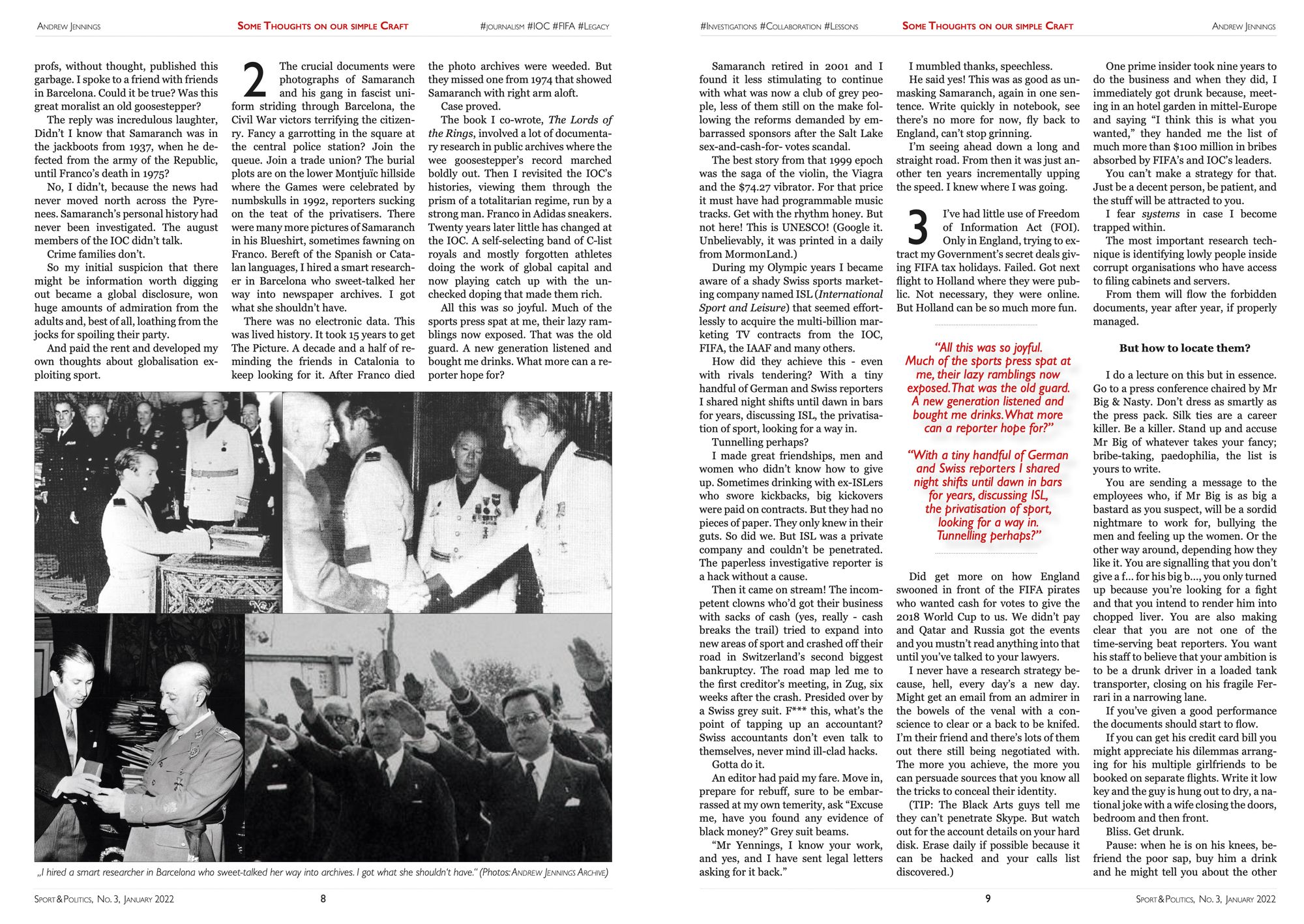
As I said, Andrew would like this statistic. But you, dear reader, might ask yourself: Damn, why does this Weinreich start his text with such a stupid statistic about pictures?
I can offer you an answer to that: Because Andrew Jennings was not only a man of documents, as described first and foremost and rightly by many authors of this magazine – Andrew was also a man of images.
Besides the motto get the documents!, I learned something else from Andrew that was extremely important to him: we need colourful notes! (That is the wording as I have memorised it).
Without documents, Andrew would never have been able to achieve such a brilliant impact and shape generations of journalists. But neither would he have done so without his colourful notes. Otherwise, he would never have been able to captivate his readers, listeners and viewers.
This aspect is often neglected. But don’t be fooled, dear folks, this too was almost always cleverly calculated and part of his tireless work to get his important messages out. Drew Sullivan also describes Andrew’s passion for storytelling in this magazine.
Some focus too much on those moments when Andrew might have exaggerated his verbal attacks. Maybe. Allegedly. I was not always enthusiastic about it either and discussed it with him. No one knew more and more brutal swear words than him.
But he was right. Andrew, and those who worked closely with him over decades may have been wrong at times about whether billion-dollar sporting TV and marketing contracts (as we once published for the FIFA World Cup) were signed in green, red or blue ink.
But that’s all.
The truth, which was gradually brought to light, was always much worse.
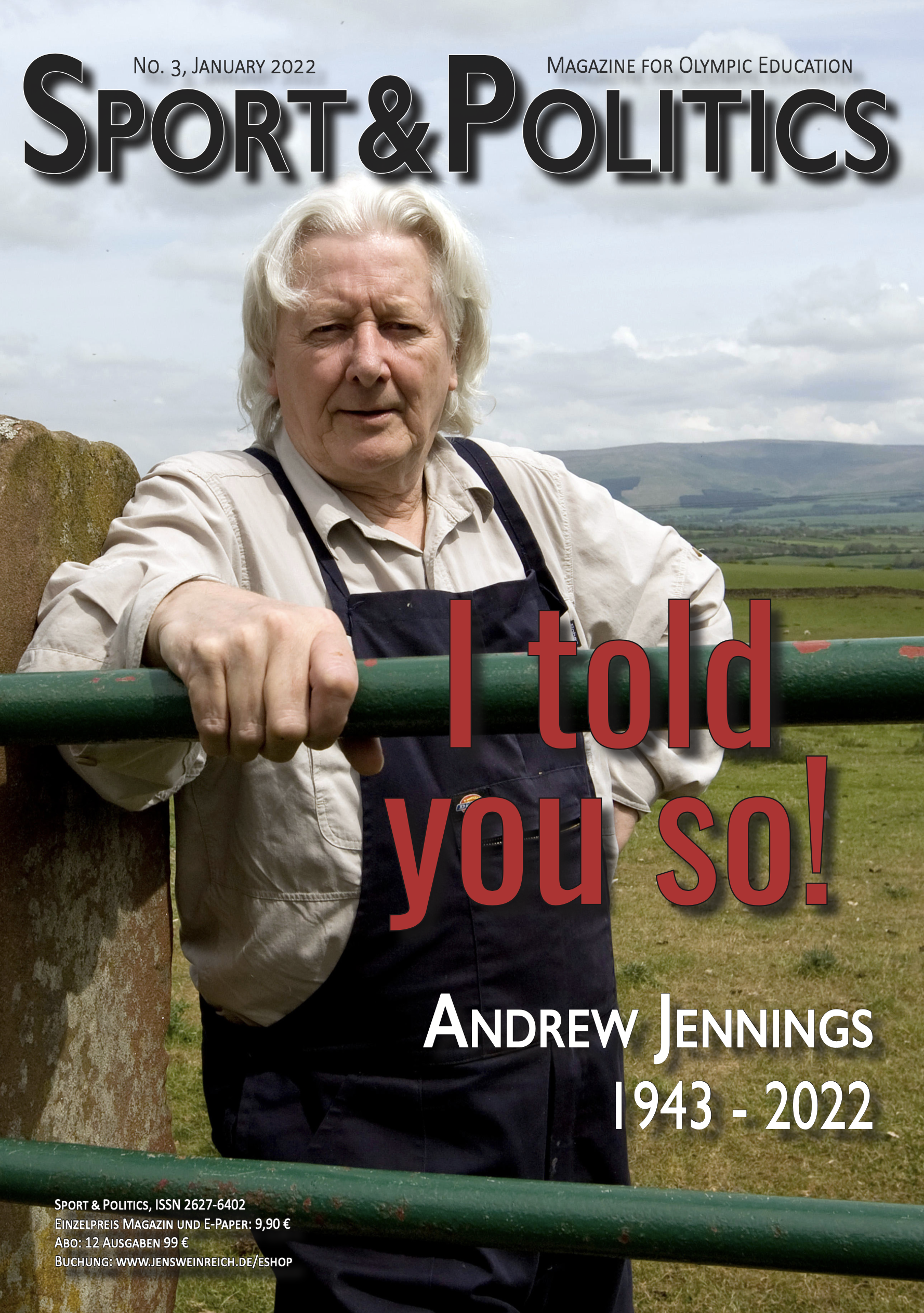
Journalism was a contact sport for Andrew, as Lasana Liburd so beautifully reminds us in this issue.
It had to crack. Documents had to be delivered. Truths had to be named. Clear words were needed.
That was true then. It is true today, a few days after Andrew Jennings’ death.
There is too much appeasement, distortion and lying. This year in particular, real journalism is needed.
What would Andrew do?
Our friend Ezequiel Fernández Moores, another of the authors of this magazine, knows the answer and wrote it to me recently: Andrew would do research on Qatar.
No one needs this so-called he-said-she-said-journalism that supposedly gives all sides their say in a balanced way. What a sky-scraping nonsense. No one needs this whataboutism, this drivel scattered by legions of propagandists about the so-called soft power of sport and the supposed blessings of mega-events held in dictatorships – like the Winter Olympics in China in a few days’ time and the World Cup in Qatar from November to December.
This is not journalism.
The year 2022 is a year of disgrace for Olympic sport. The dictatorships China and Qatar are powerful rogue sport states that have never created anything good for world sport at any time. I call it Olympic state corruption. Bought votes, bought federations, bought officials, bought events, bought propagandists, bought secret service agents to cover traces of corruption, bought politicians, bought institutions, bought scientists, bought NGOs, bought athletes, you all know stories about it. Forget something?
Oh yes, bought journalists.
Qatar and China are cancers on the Olympic movement. That’s what Andrew Jennings would say.
Corruption is corruption is corruption. Sports crime is sports crime is sports crime … whether in the IOC, in FIFA, in the former IAAF (now World Athletics), in the former AIBA (more recently IBA), whether in the IBU, in the IWF, in the FIVB, in World Aquatics (formerly known as FINA), in the OCA, in ANOC, in CONCACAF, in CONMEBOL and many other federations and institutions.
Crimes are crimes are crimes.
Corruption and crime in world Olympic sport should not be trivialised with terms like good governance problems.
Tell it as it is.
Andrew would investigate and demand that many more federations be investigated under the Racketeer Influenced and Corrupt Organizations Act (RICO), as they were in the DOJ trial against officials in the FIFA kingdom.
That’s what Andrew would do. And he would let documents speak.
Without Andrew Jennings and the work of a few others – far too few we were – the spectacular FIFA proceedings would never have happened. Read, for example, the contributions of Steven Berryman, Special Agent in the criminal investigations in the US, and IOC doyen Richard Pound. They are quite astonishing contributions.
The power of documents combined with the power of a good story, peppered with wonderful episodes – the color notes – and unique images: James Oliver recalls at length in the issue the six legendary Panorama films with Andrew Jennings. Andrew left behind not only revelations and lessons, but also images that have been imprinted on many people’s minds:
Columbo Andrew in a raincoat, out and about for the BBC on a mission of enlightenment.
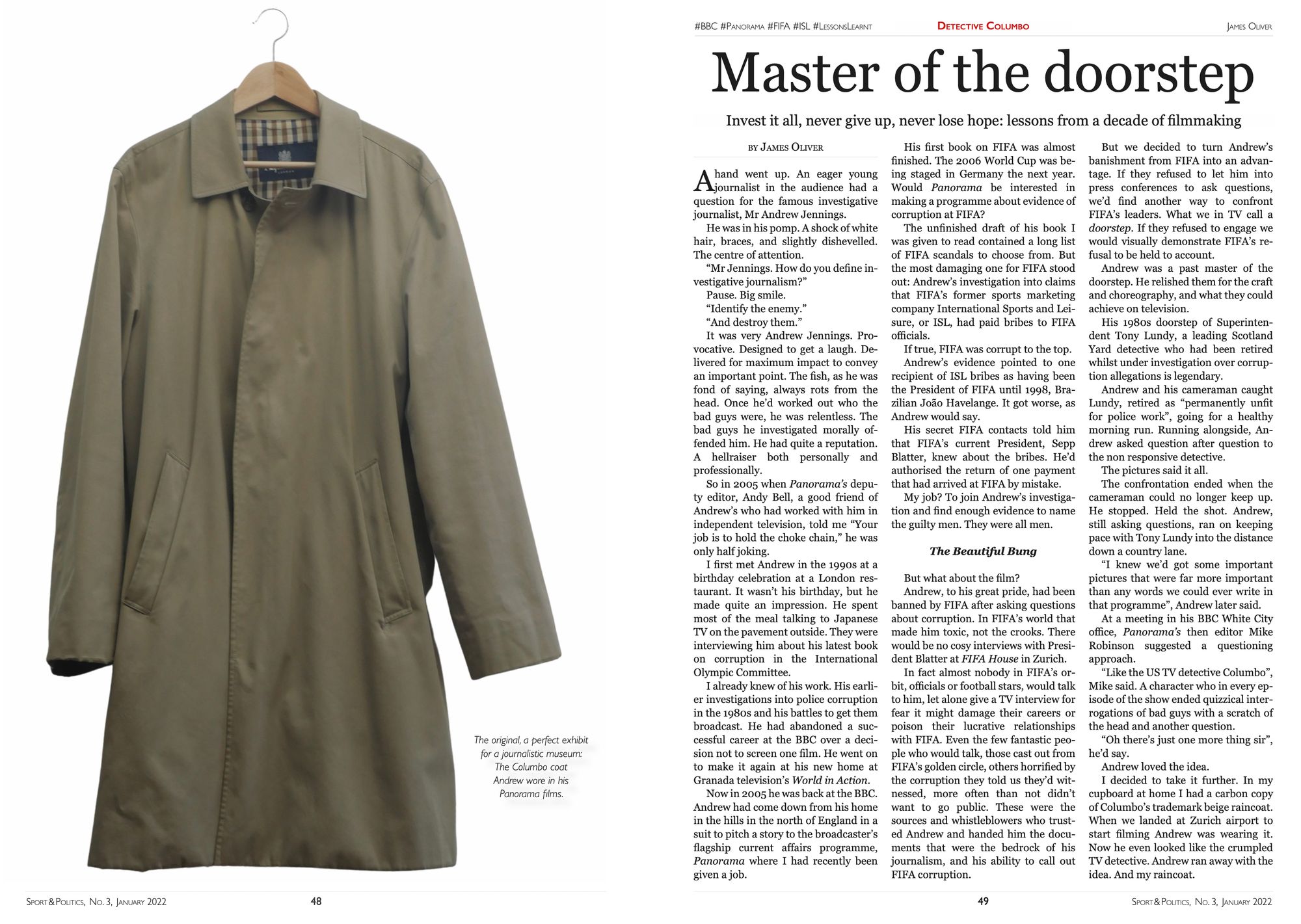
In the 1990s, when we started our work together, we still had to take proper notes, that is, write everything down, with a sheet of paper and a pen. One can tell the younger generation about it, even if they don’t know what to do with these terms from the Stone Age. Then there were fax machines and floppy disks, sometimes people sent floppy disks by post from country to country – as we did. Andrew, like me, had an email address from Compuserve since 1993 or 1994. Compuserve had what was called an Executive News Service (ENS), which cost us several hundred Pounds and Deutschmarks most months, but which included the offerings of the Reuters, AP, AFP and UPI news agencies and some early press archives.
That’s how it began.
Andrew was one of the first people I know who used scanners professionally. He also scanned his written notes. In the digital age, sometime after the turn of the millennium, we moved to photographing everything: Not just documents that informants sometimes showed us only briefly, but all sorts of things. The digital camera had partially replaced the physical notes. And the snapshots of destinations, locations and people were literally colourful.
Colorful means much more. It was from 2002 at the latest, when I had started a TV documentary on Sepp Blatter and FIFA, that I changed my tactics, in close consultation with Andrew: I sought proximity at times. You have to do that on TV anyway, otherwise there is no footage. But I also did it for a few years for my blog and thus for my actual work, also for my journalistic partners. I partly played the good guy, at least compared to Andrew. That brought the one or other insight and now and then accesses that enabled us to supplement documents with more and more background knowledge and observations.
It was always about sharpening the overall picture.
Colorful notes, for example, from Mohammed Bin Hammam’s estate in Doha in October 2003, when I was allowed to dine with MBH and FIFA officials in the next room as Blatter, Grondona, Teixeira, Beckenbauer, Platini and all the comrades dined behind closed, mirrored golden doors. There were many such rare moments, in the IOC, in FIFA, in several Olympic federations. I sat on the couch with executive members and tasted their wives’ freshly baked Christmas biscuits; I spent all-nighters drinking with IOC members; I met with prominent floppy hat investigators in Washington and other destinations; so many unforgettable things happened, little of which I have yet published.
And always it was in close cooperation with AJ, with whom I also met Christopher Steele in London in January 2011, a few days after the shameful and totally criminal FIFA decisions to host the World Cups in Russia and Qatar, that former MI6 agent who was investigating the World Cup award to Russia and who years later was to make headlines around the world with his dossier on Donald Trump.
Now imagine this: Andrew had many friends like me. (And I don’t mean the many so-called FIFA experts, starting in 2015, after the wave of arrests and DOJ indictments, suddenly mushroomed in all sorts of media outlets – when it was en vogue to cover the FIFA criminal system). In the beginning there were half a dozen of us – worldwide – who did it seriously for years. There were more and more. Sometimes we didn’t even know each other personally. It was enough for Andrew to say: You can trust him or her.
That was the access code.
Andrew’s judgement.
Andrew Jennings was, in the best sense of the word, a spider in the ever-widening research network. In the end, no setback could really stop him or us. A very crucial addition to these journalistic ambitions was the initiative of Jens Sejer Andersen, who created a very unique platform with Play the Game and everything that embodied this institution and this series of conferences. Play the Game’s motto in the early years was “Home for the homeless questions in sport.”
My friend Jens has often said: These questions have become mainstream and can no longer be ignored. I say this without wanting to glorify Play the Game, but it is to its historical credit. Whether Play the Game can continue this tradition remains to be seen.
Jens Sejer Andersen was also like a spider in the web. Andrew stood for the really hard journalism. Jens was an enormously important link to South America, to the academic world (if Andrew hadn’t already made contacts there himself, we can read about that in the magazine) to national and international sports federations – and at some point also to politics. Apart from a few lobbyists, some of whom are paid by Qatar, I know of no other person like Jens Sejer Andersen, especially no truly sincere person with such great merits, who has been and is active in so many international political commissions and working groups – and has lobbied tirelessly for decades for transparency and the fight against corruption/crime.
Andrew was one of the first to understand the potential of Play the Game and Jens’ idea, and to consistently use it in his work. I have given presentations at all conferences since 2000 and have worked on programme committees for about 17 years as a volunteer. This is something I have said perhaps hundreds of times in the Play the Game network and also when I have organized a similar conference in Germany in February 2008:
“Put your information on the table, share it with us, and it will be worth it for all of us. You will be rewarded. You will receive much more than you are capable of giving.”
That has become second nature to me. And I think also this put it on the table, join the party, you will be rewarded I learned from Andrew.
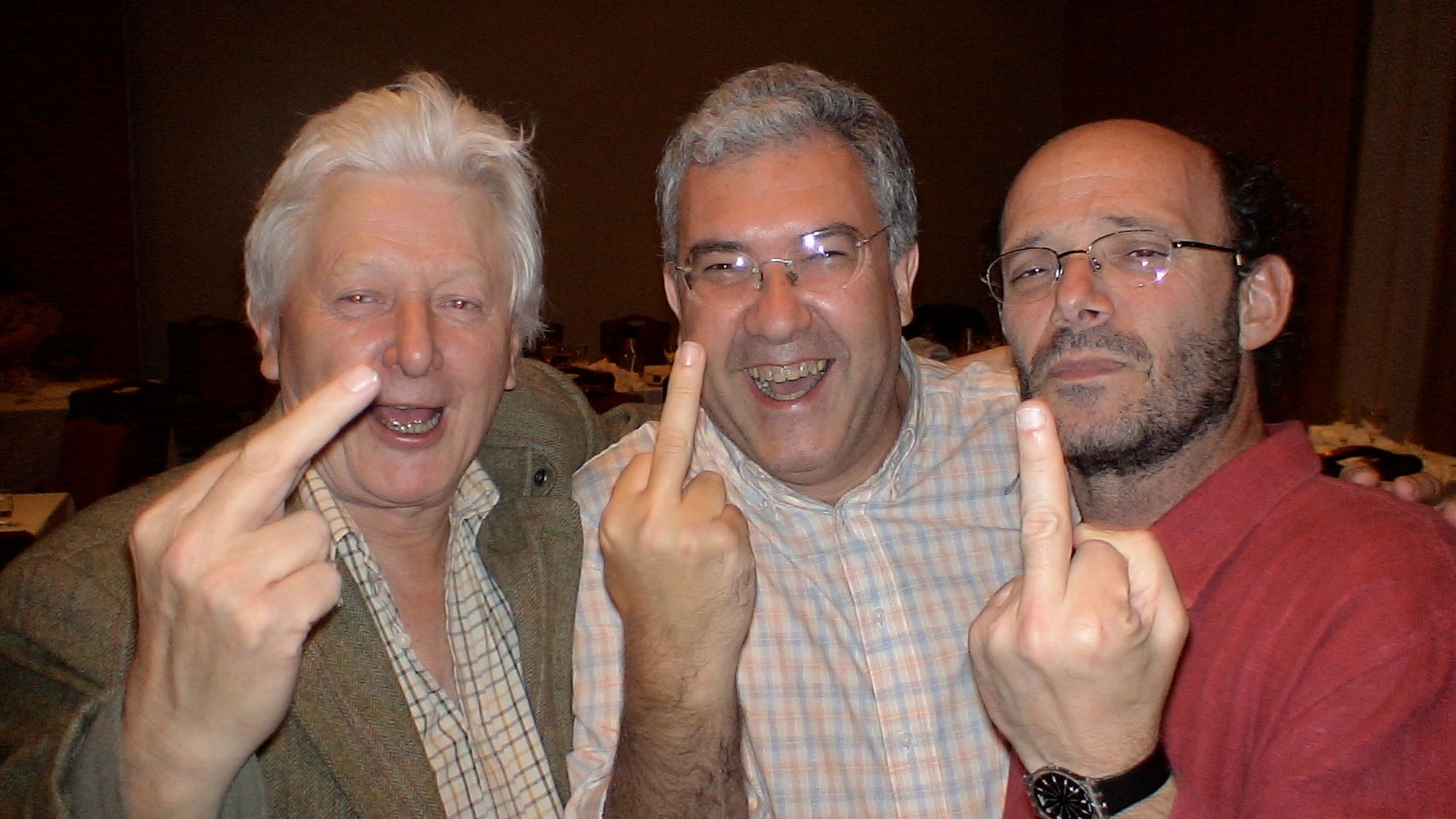
You will be rewarded doesn’t mean money. It means journalistic education. It means information. It means support. It means friendship. It means a fruitful exchange. It means help. It means encouragement. Ask Bob Munro, Laura Robinson, Declan Hill and other authors of this magazine.
Deep friendships have developed in this network. You may read a lot about them in this booklet. In some cases it has helped that people have not been broken by the brutal injustices they have faced. I would like to mention my friend and our friend Bonita Mersiades, a fighter with a lion’s heart, a whistleblower whose book Whatever It Takes: The Inside Story of the FIFA Way is by far one of the best books ever written about FIFA worldwide. Of course, Bonita has selflessly worked with me on this magazine for two and a half weeks since Andrew’s death. She read and edited all articles and, together with Mathew D. Rose, proofread everything again.
Some authors write that Andrew Jennings selflessly shared all the information. I don’t want to devalue anything, I just want to clarify things and come back to the network idea.
We almost all work in different markets. The internet and the instant availability of stories around the world have not changed that in any significant way. In the genesis of this network, coined by Andrew, when the internet was just being born – the IOC crisis in 1998/1999 was then the first major crisis spurred on by the advent of the internet and the easier sharing of information – there was almost no competition between us. What Andrew published in British media, what Frank Brandås published in Norway or Thomas Kistner in the Süddeutsche Zeitung and I published in the Berliner Zeitung at that time, had an exclusivity in every market. Only Kistner and Weinreich got in each other’s way a bit and had to come to a clever arrangement. But otherwise we were able to exchange information freely across national borders.
Of course, Andrew never immediately shared all documents with everyone. None of us did. But he developed a mastery of making his documents and stories immediately available for publication to many friends and colleagues. That increased the impact.
And everyone benefited.
Join the party. You will be rewarded.
I remember several trips I made for AJ to Switzerland, to Lausanne and Zurich and Bern, to meet informants and receive documents at night, and yes, actually also in garages and car parks. Off home, into the scanner – and off to Andrew. It was the same on many trips on all continents. Antigua comes to mind, filming in early 2004, it was about a basically criminal buddy of Jack Austin Warner, who nevertheless later became a minister and NOC president, Paul Chet Greene. There, too, I got a stack of documents from the insurgents in the football federation, including World Cup tickets that Greene and Warner were unable to sell on the black market. Off home, into the scanner – and off to Andrew.
Over the years, of course, it became quicker and less complicated.
I also remember the spring of 2001 when Andrew came to me in Wandlitz and we spent two or three days and nights discussing and scanning and copying files and papers. Then he went on to Munich to Thomas Kistner for the next sessions. “Comrade,” AJ had written a few days earlier, “I want you to give me lessons on FIFA and ISL.” Thomas and I had a hundredweight of explosive documents exclusive to the world at the time. It was an honour, it was extremely important to me to give something back to Andrew at that time for all the knowledge, for the friendship and inspiration he had given me.
Again, Andrew tutored so many colleagues and friends like no one else. He was the focal point and the eternal constant in this network, even in the years when he had not worked in the IOC field for a long time, when I felt quite lonely at many IOC meetings, sometimes even as the only journalist on site working in his tradition.
So one thing is the documents, with the culmination of many years, which James Oliver describes in detail in his wonderful article: When AJ finally had the complete ISL bribery list in his hand. It was the reward for hard work.
How the years-long revelations in the industry went down, which Andrew described and partly stirred up, is outlined by two insiders – Dominik Schmid and Alex Phillips – from the other side in their contributions, which I am extremely pleased about and which also make this issue a special one. You have rarely or perhaps never read anything like this before:
Dominik Schmid worked for many years for ISL, for KirchSport and Infront very closely with FIFA, IOC and others. Alex Phillips was at UEFA for a long time and is now the FIFA administrator responsible for the World Football Remission Fund, currently filled with 201 million dollars, i.e. the fund that would hardly have existed without Andrew’s revelations.
One of my favourite passages from all the brilliant texts I was allowed to edit comes from Alex:
“As soon as his book FOUL! came out, I ordered it. The hardback arrived and sat on my desk at work. One of the senior UEFA lawyers saw it and immediately asked to borrow it – never to be returned, in true sports governance tradition. Everyone wanted to know: what he had uncovered this time around?”
Everyone wanted to know.
You don’t earn this honour by parroting press releases or publishing meaningless answers from press offices.
Everyone wanted to know.
In other words:
It is not about publishing what the powerful, the influential, the crooks … want the media to publish. It’s about publishing what they don’t want to be published! If that is combined with deep knowledge and first-class analysis – all the better. That is journalism.
End of discussion.
Let me return to the color notes, that important addition to Andrew’s work. It is therefore no coincidence, but only logical, that you will find in this issue some photos (not only by me, but also a legendary picture by Frank Brandsås) that we have shown at many presentations and lectures: Joseph Blatter with Don Julio Grondona, Jack the Ripper, Chuck Blazer with Ricardo Tricky Ricky Teixeira – and some others. The power of images, the effect of colourful notes, not only for the purely journalistic, very personal process of processing and remembering, but also for the production of the various products, whether newspaper articles, books, radio reports, online texts or television documentaries. Andrew considered this more carefully than anyone else in investigative journalism that I know. That was fascinating.
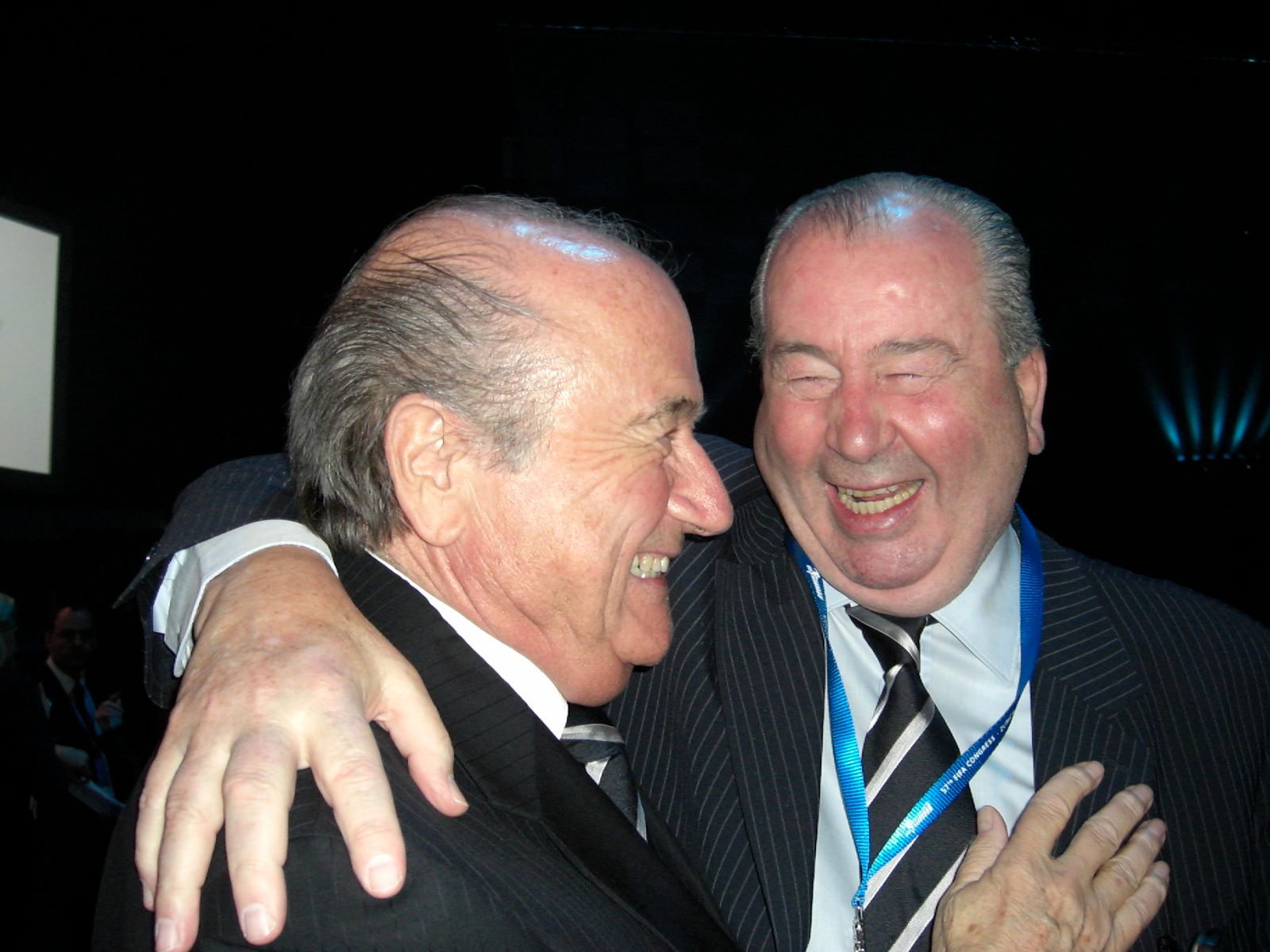
I got to do Andrew’s dress rehearsals for presentations for many years, not just at Play the Game, but on other occasions. He was a meticulous worker. He came to every appointment, every conference with a perfectly prepared manuscript. Everything in it was timed to the minute, almost to the second. Many jokes and captivating elements were precisely worked out in the manuscripts – some were added live and spontaneously. For someone like me, who rarely met a deadline and who usually worked out his presentations in a desperate last night shift even at conferences, it was always a mystery how someone could be so professionally consistent. It was always an honour for me when Andrew sent me his presentations in advance or handed them over on a stick on site. “Comrade!”, there wasn’t much more to say. I then edited his presentations as necessary, technically spruced up the documents and pictures, and added photos that we had talked about and that amused us, that we knew would make an impact.
I would even go so far as to say that these snapshots were an important part of our kind of journalism. Often you only have one chance – and you have to take it. I could probably give them a hundred examples of this and back it all up with photos, often very bad and blurry photos (but that didn’t matter because often the camera wasn’t allowed to be seen) that Andrew and I were downright happy with them.
These snapshots sometimes became documents themselves because they could prove something. To get these pictures, I deliberately made an ass of myself. Some people, including journalists, have asked, what does this guy want all the time with the camera, is this still journalism, isn’t this unserious?
I just reply, like AJ: colorful notes.
And I say, like him: have fun.
- What, the bribe-payer Jean-Marie Weber (ISL supremo) was pulling strings in the IOC hotel before the choice of the 2016 Olympic city for Rio de Janeiro? (We have the photo of Weber and Havelange on site).
- What, Jean-Marie Weber met with Blatter? (Photos available.)
- What, Jean-Marie Weber goes in and out of the IOC headquarters, even though the then IOC President Jacques Rogge supposedly wanted to fight corruption? (Photos available.)
- Photos of Blatter and his disreputable advisor Peter Hargitay, preferably also with Mohamed Bin Hammam? (Photos available.)
Some of these photos, which first appeared on our websites, were stolen by many media over the years and published hundreds of times.
At some point, I was banned from taking photos in the immediate vicinity of FIFA and the IOC. Sometimes I was taken away like a criminal and been told to delete the memory cards.
These are all examples linked to many episodes, small photo documents, tiny pieces of the big puzzle we have been working on for decades, each in his own time, some long out of this business: Andrew, Frank Brandsås, Thomas Kistner, Alan Tomlinson and John Sugden, James Oliver, Lasana Liburd, our great compañeros from South America Ezequiel Fernández Moores, Juca Kfouri and Lúcio Castro, to name but a few, and many more. They all tell their small and big stories in this magazine. It was a privilege and luxury to work with them.
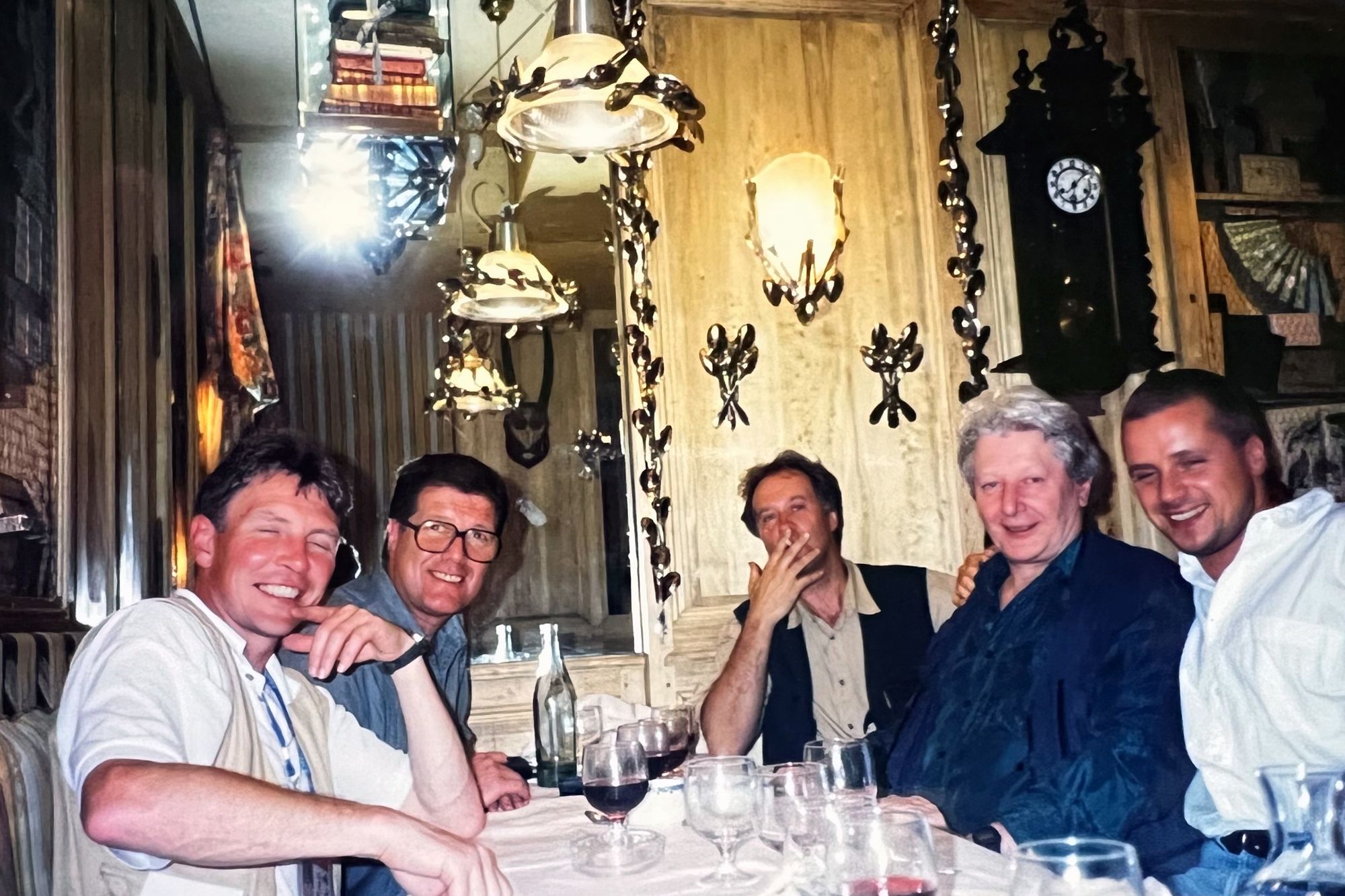
Of course, they all have much more to tell about the many years of investigations and collaboration. And believe me, there are hundreds of other journalists, whistleblowers, informants, friends and companions also from the sports business, sometimes even from academia, who could tell similar stories. This magazine does not claim to be exhaustive. And yet I believe that these contributions by 53 authors from 17 countries have created a wonderful, unique document of sports politics history.
Anyone who wants to even begin to understand the past 30 years since the publication of The Lords of the Rings, this revolution in investigative sports politics reporting and the significance of Andrew Jennings should read these articles carefully. More than 50 pieces of the puzzle fit together to form a great whole. If one reads The Lords of the Rings again today, with the additional knowledge of 30 years, one notices that it is not, of course, a book of massive revalations. It couldn’t have been anything else. It was the beginning. It was revolutionary in this industry. Nothing more, nothing less. It was also a revolution in how the public in democratic nations judge the sport multinationals.
With The Lords of the Rings research was established in the field of sports politics. Many journalists still misunderstand research today – and believe that it is research to find a telephone number or an email address; or that it is research to obtain information from the press offices of the IOC and FIFA in order to disseminate their fabricated propaganda postulates unfiltered. In the past, this was called collecting material. Today, collecting material is called googling.
Research, however, begins at the moment when one compiles and publishes information that others do not want published. Whether IOC members, FIFA presidents, managers of sports marketing agencies, politicians, sheikhs and emirs or world federation presidents. Sometimes, that is perhaps the high art, often also connected with luck, but in any case with knowledge, courage and perseverance, as lived by Andrew Jennings, you can then call it investigative journalism.
I am absolutely happy about every author in this issue, about every line, every contribution, regardless of length or depth. I have already mentioned some of them, but I would like to mention a few others without in any way diminishing other texts.
First and foremost: Vyv Simson. Vyv is one of the few, perhaps the only writer in this magazine I have never met in person. Shame. Vyv has made sports journalism history as co-author of The Lords of the Rings. He describes the beginnings of journalism by and with Andrew: “How it all began”.
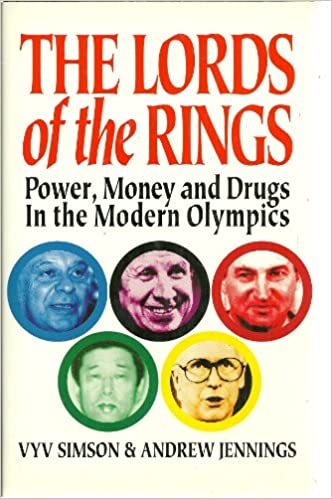





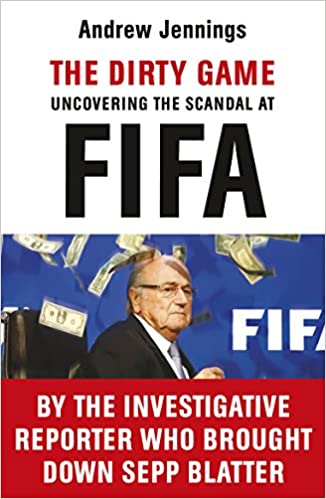
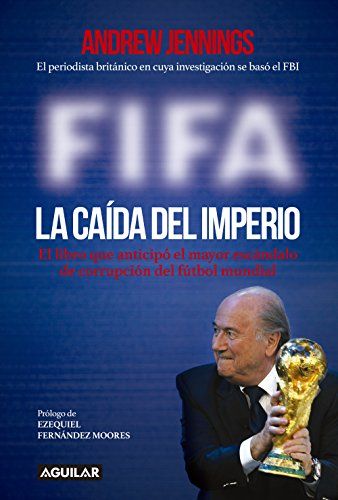
Notice something: I wrote sports journalism. It will have been the only time. Because I don’t think Andrew, although many highly regarded writers write that too, was a sports journalist. No. Absolutely not. And it also has to do with Andrew and the tough battles in our own industry (with so-called colleagues, with bosses in our own media, with the many sports propagandists disguised as journalists) that we had to fight, especially in the early years, that I at times completely rejected the term sports journalist and sometimes even considered it a swear word. In the meantime, I am quite indifferent to it, even though I would like to clarify once more at this point: What Andrew stands for, what Thomas Kistner and I tried to do in the 1990s in the tradition of Andrew and Vyv in our books on the IOC (1996, 2000) and FIFA (1998), was from the very beginning enlightening political journalism – in the field of sport, national and international sports politics, at the interfaces of economics and politics with the sports business. Meanwhile I call it Olympic education in the subline of my magazine project.
By the way: The long-time IOC Director General François Carrard – the grey eminence in world sport, extremely influential until the last day as an advisor to numerous federations and sports crooks – died one day after Andrew. On the website of the International Sports Press Association (AIPS) there was a short obituary for Andrew Jennings, and an absolutely enthusiastic one for Carrard. If you compare the two obituaries, you can see what belongs together.
Not Andrew but the powerful official, who takes a thousand secrets to his grave, was described by the AIPS president as a friend and a brother. “He believed in us and became one of us. Words are not enough to remember him, we will have to do it with facts because he will continue to be one of us.” That says everything about so-called sports journalism.
Any of the authors of this magazine, from any country, could write their own book on the resistance in their own industry. Believe me. Jan Jensen only mentions it briefly, Lúcio Castro and Jean François Tanda also, Hajo Seppelt and Grit Hartmann don’t go into it, but they have experienced it. It is an important part of the truth. It was and is quite crucial for most friends and colleagues – they all wouldn’t be what they are and wouldn’t do this kind of journalism, and probably would never have been able to make the revelations they are known for, had they not had to fight and survive these battles.
The opposition has never gone away. It is a perpetual cycle. There are now some lighthouse projects in journalism, international award-winning investigations (XYZ-Leaks), which are all enormously important; but there is hardly any investigative journalism in the day-to-day business. At least not in the day-to-day business of sport politics. Hardly any media outlet wants to pay for it. That is also why PR and propaganda still dominate. Meanwhile, the main merit of AJ and Vyv and the generations influenced by The Lords of the Rings is that it is hardly possible for the sports multinationals, whether they are called IOC or FIFA, to reach people in enlightened societies with propaganda.
For the most part, it falls flat. The reputation that global corporations like FIFA and the IOC have – that is, the reputation of being mentioned in the same breath as the mafia, only not yet having been classified as RICO organisations unter the Racketeer Influenced and Corrupt Organizations Act – they have earned themselves with their manifold semi-criminal and criminal offences. These offences, however, have been brought to light by journalists.
The many investigation commissions that sports organisations (IAAF, IOC, IWF, AIBA et. al) have had to set up in recent years are solely a result of Jennings’ journalistic generation. This generation has generated millions in revenue for legions of lawyers. These commissions of enquiry, whether by McLaren or others, also cost millions. A whole so-called good governance industry, in large part lies and deception, is based on the work of journalists.
That is AJ’s legacy.
That will remain.
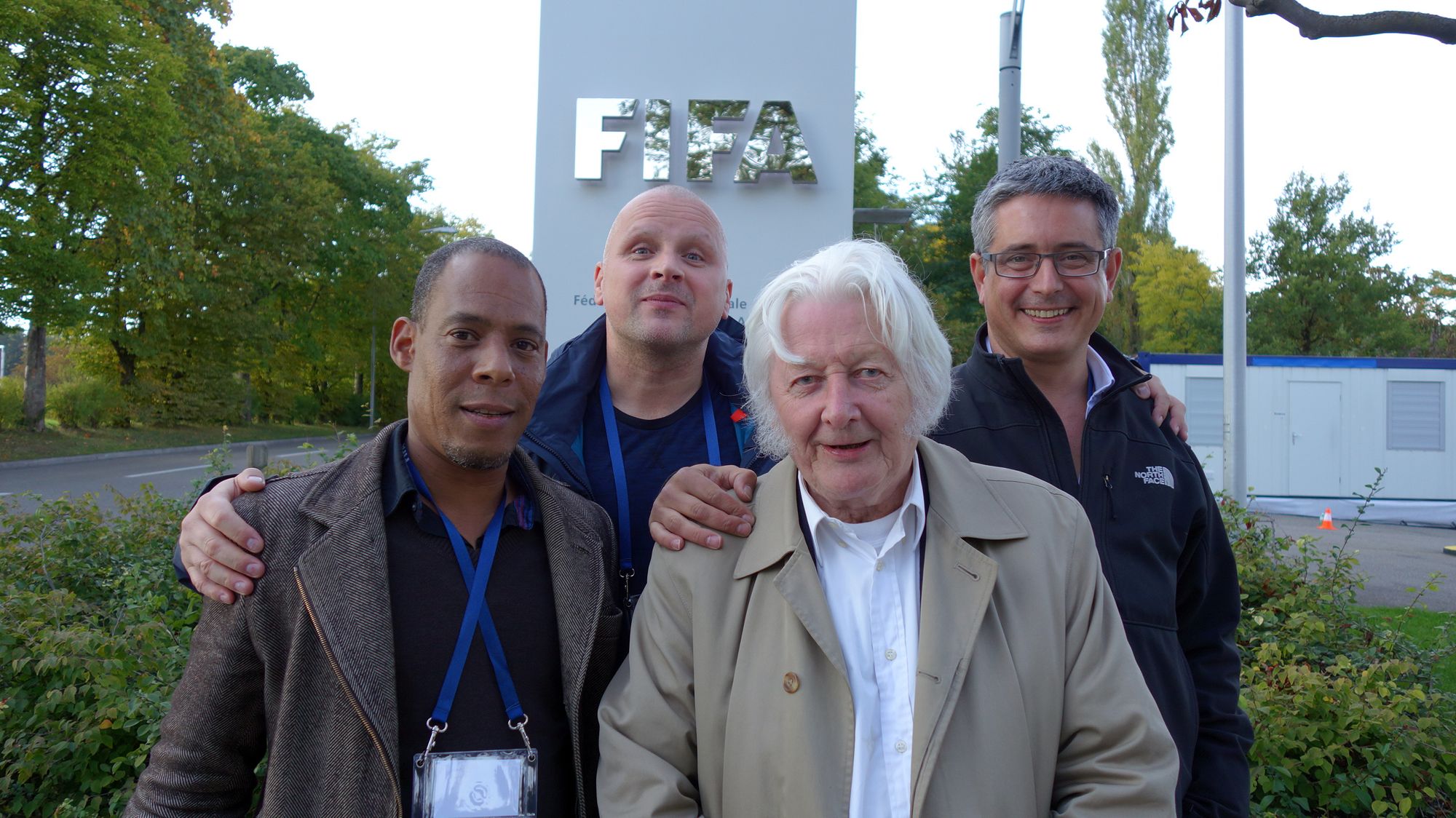
The other part of it, and this is something many colleagues can talk about, is what Clare Sambrook has written recently as a response to the obituary in The Times:
“Your cracking obituary for my partner Andrew Jennings is off beam in one respect. Andrew didn’t own a farm. We worked and lived with our young children in a rented farmhouse. Our landlord (Inglewood Properties) forced us out of it in the weeks after Andrew’s stroke. Andrew’s stellar reporting did not make him rich. Precarity came with the job.”
Another important point is this: Andrew’s work, and that of many other colleagues, was never and is never History Channel, as was once blasphemed by English World Cup bidders and journalists from the UK.
What idiots.
Andrew’s work has had and continues to have tremendous impact.
There are several leading officials in world sport who have told me so or similarly over the years.
Joseph Blatter was one of the first.
It was in June 2005 in Leipzig. I had been waiting for Sepp in the hotel lobby after a Brazil game at the Confederations Cup. When he arrived, along with his entourage, he had the option of heading straight for João Havelange, who was discussing with his people in the middle of the lobby, or for that one annoying journalist. Sepp came to me and got himself invited on a pub crawl. We ended up in a bar on Gottschedstraße at some point. Sepp was recognised a few times, but some people also mistook him for a pseudo-star from a German soap opera (no lie). At some point that evening, he put on his typical Sepp Blatter look and said, meaningfully, “It’s crazy, whatever I did, how many PR people I employed and hired and fired, I could never get rid of you and your friends around this Jennings.”
He tried everything, including bans and lawsuits, but journalism was stronger. Simple as that.
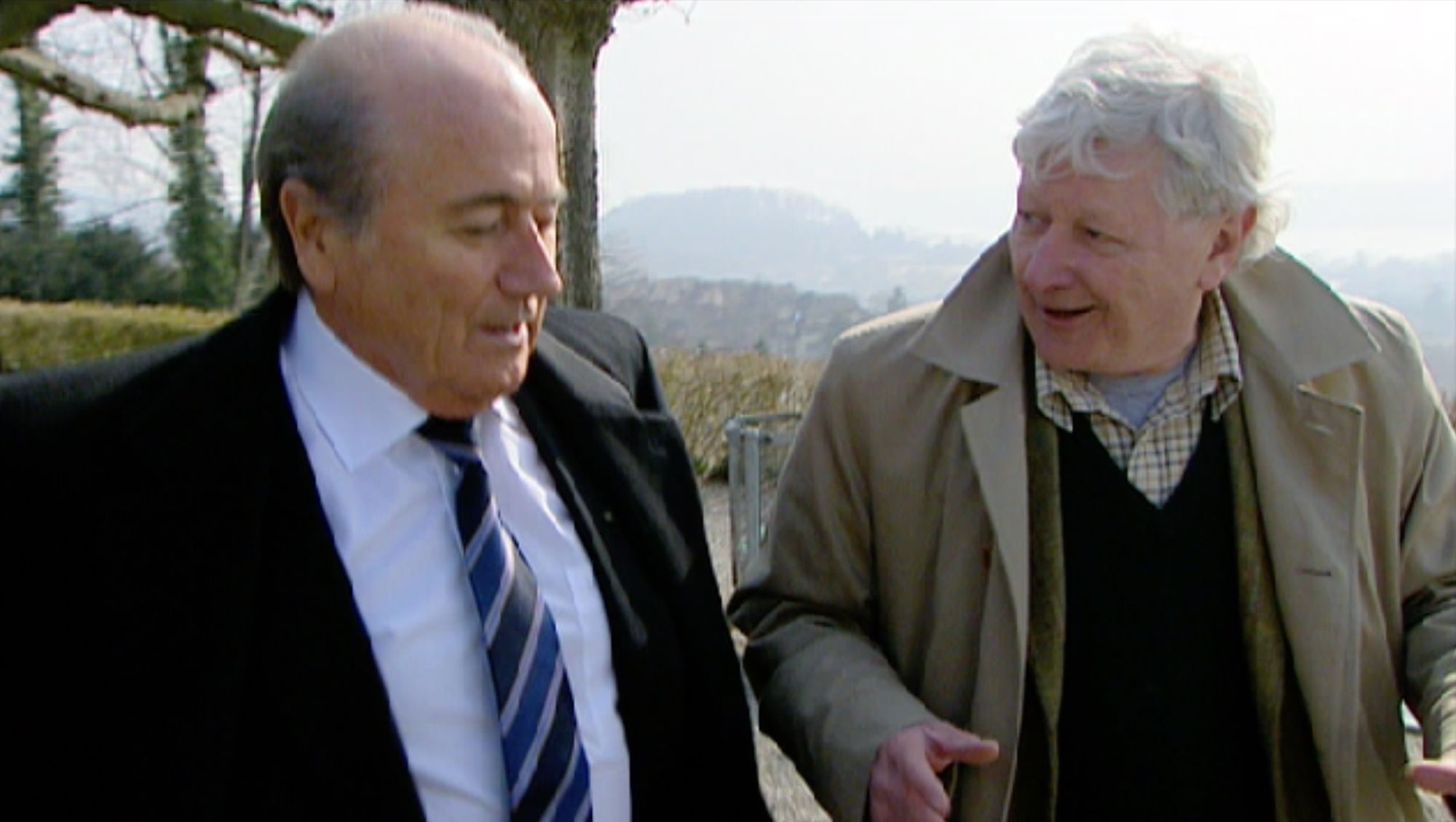
Blatter knew exactly that he owed this disastrous image that FIFA already had at that time to the revelations of very few journalists.
Funnily enough, in February 2006, the FIFA Committee for Ethics and Fairplay at the time, which included Mohammed Bin Hammam, officially declared me persona non grata. Andrew, who had already been persona non grata for several years, naturally got hold of the minutes. I then confronted Blatter about it during the World Cup in Germany. I was immediately invited to breakfast the next morning. So I sat at Sepp’s coffee table in the Intercontinental Hotel in Berlin and wanted to know what had become of the unanimous decision of the ethics committee, why I had nevertheless received a World Cup accreditation.
Blatter made a hand gesture towards the wastepaper basket and asked:
"Do you think I’m that stupid?"
Truthfully, I replied, “No.”
Such a decision by an ethics committee would have to be approved by the FIFA Executive Committee, Blatter explained. “And who sets the agenda for this meeting?”
Only he.
So much for good governance.
Why I remind you of this again? Sepp had learned his lesson. He knew that the ban on Andrew had been a mistake and had only made FIFA – like the IOC once did – look even more stupid.
And I knew a fortnight ago that Sepp Blatter would not turn down my invitation to write about Andrew Jennings in this magazine. It was one of those situations that a man like Blatter immediately tries to exploit for himself. I don’t mean that in a bad way at all. I have studied him for decades.
I had written to Blatter: “I have a request that sounds so strange that you might find it interesting and exciting again – at least that’s how I remember you, always good for surprises. (…) I will dedicate an issue of my magazine to Jennings and his work. In it, many long-time companions will comment. I would like to ask you if you would also contribute a text. JSB on AJ. From man to man. Just like that. After all these years.”
The first email disappeared into the spam folder. When the second email was delivered, the promise came in minutes.
A few days later he wrote:
"When I look at what is happening in FIFA today, I would be glad if Andrew Jennings were still here."
Quote. Joseph. S. Blatter.
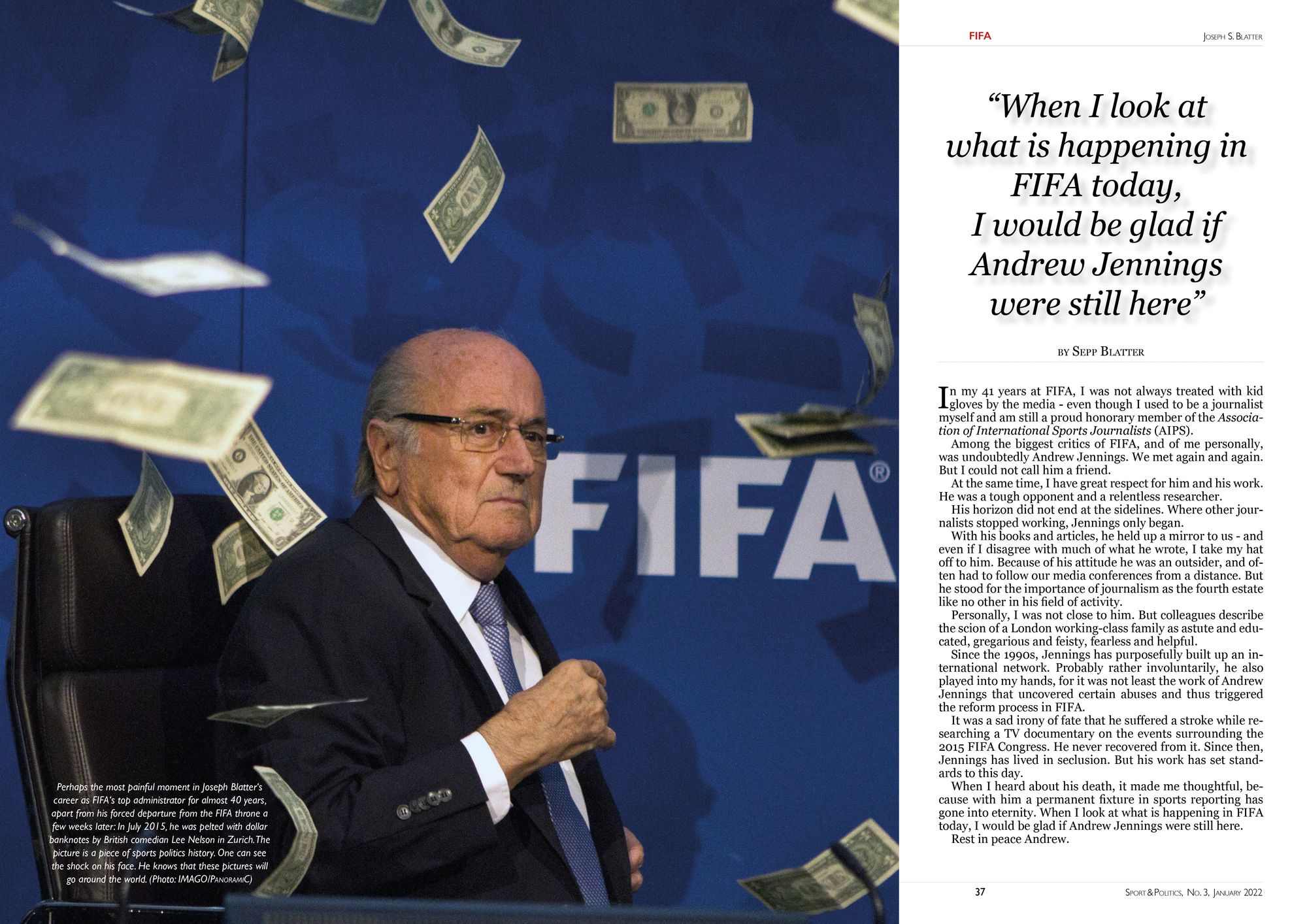
I will not comment further on Sepp Blatter’s text out of respect. I am sincerely grateful for this input. Sepp’s lines are, of course, Blatter-like. I had to smile and could write my own magazine about it. A congenial complement to Sepp’s contribution is provided by Lord David Triesman, the former Chair of the English FA. David describes in a magnificent way how obsessed Blatter once was with Andrew and his revelations. A unique, wonderful piece. Here is just one quote from it:
“For two hours, right over lunch, and without any discussion of our potential [World Cup] bid, Sepp Blatter talked about Andrew Jennings.”
Hilarious.
Thank you, David. Thank you, Sepp.
I would also like to quote, respectfully, from that email in which Lord Triesman had given me his consent to write:
“I’d be honoured to write about Andrew. He was a significant person in my sport and personal life. Of course his legacy goes beyond journalism – you are absolutely right. Some very basic stuff about honesty and tenacity. Remarkable man. Incidentally, as the Trump years have emphasised time and again, creating conspiracy theories is also a business model and people who market it can make an absolute fortune as they did in FIFA.”
“It would be a good time for FIFA to apologise to Andrew (and possibly others) to mark his contribution to their essential journey, should they ever make it, towards honesty.”
Of course FIFA will not apologise to Andrew. Neither will the IOC.
It doesn’t matter.
He told us so.
Andrew has won.
Join the party!
Let’s get on with it.
That's what Andrew would do:
He would push this project forward.


